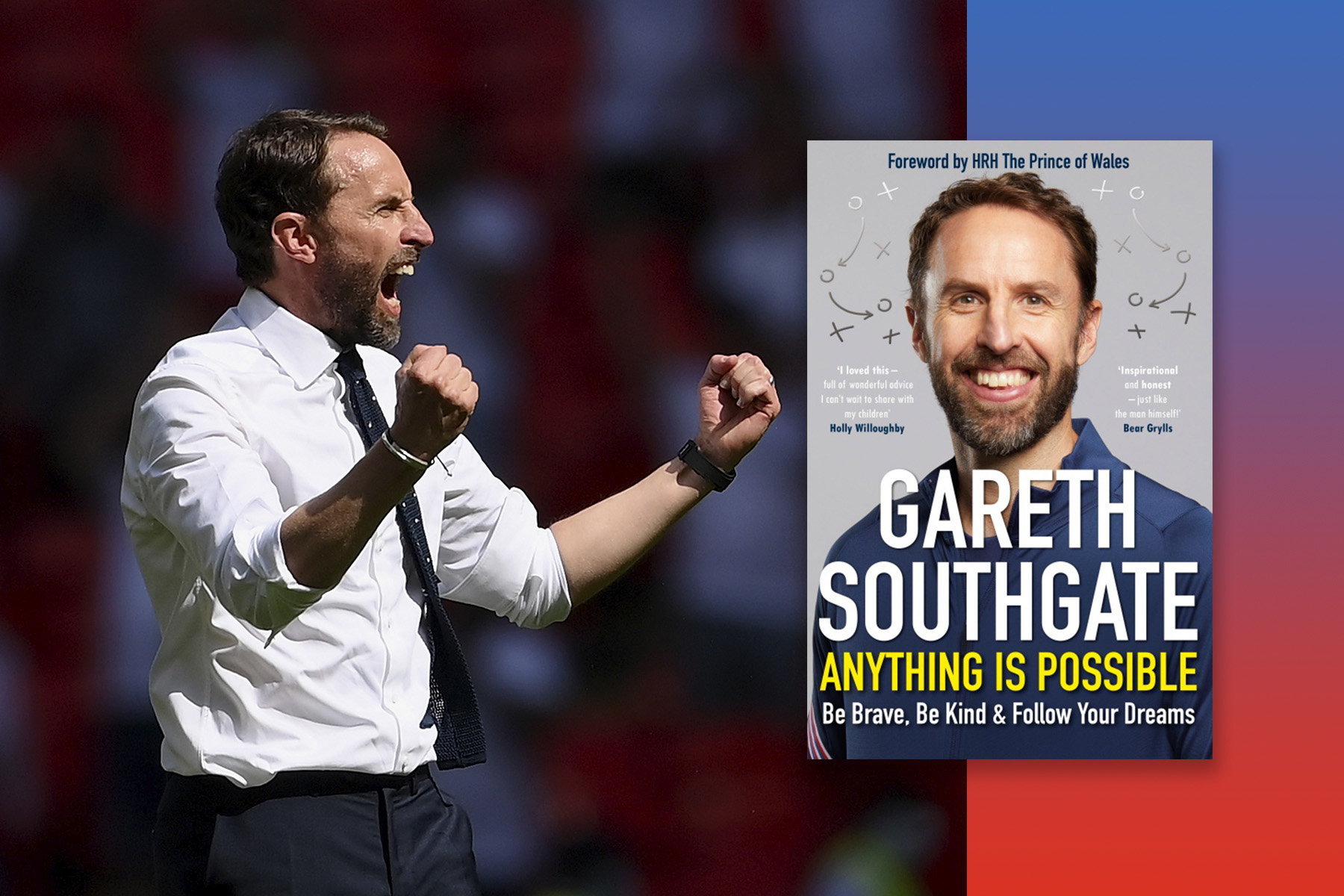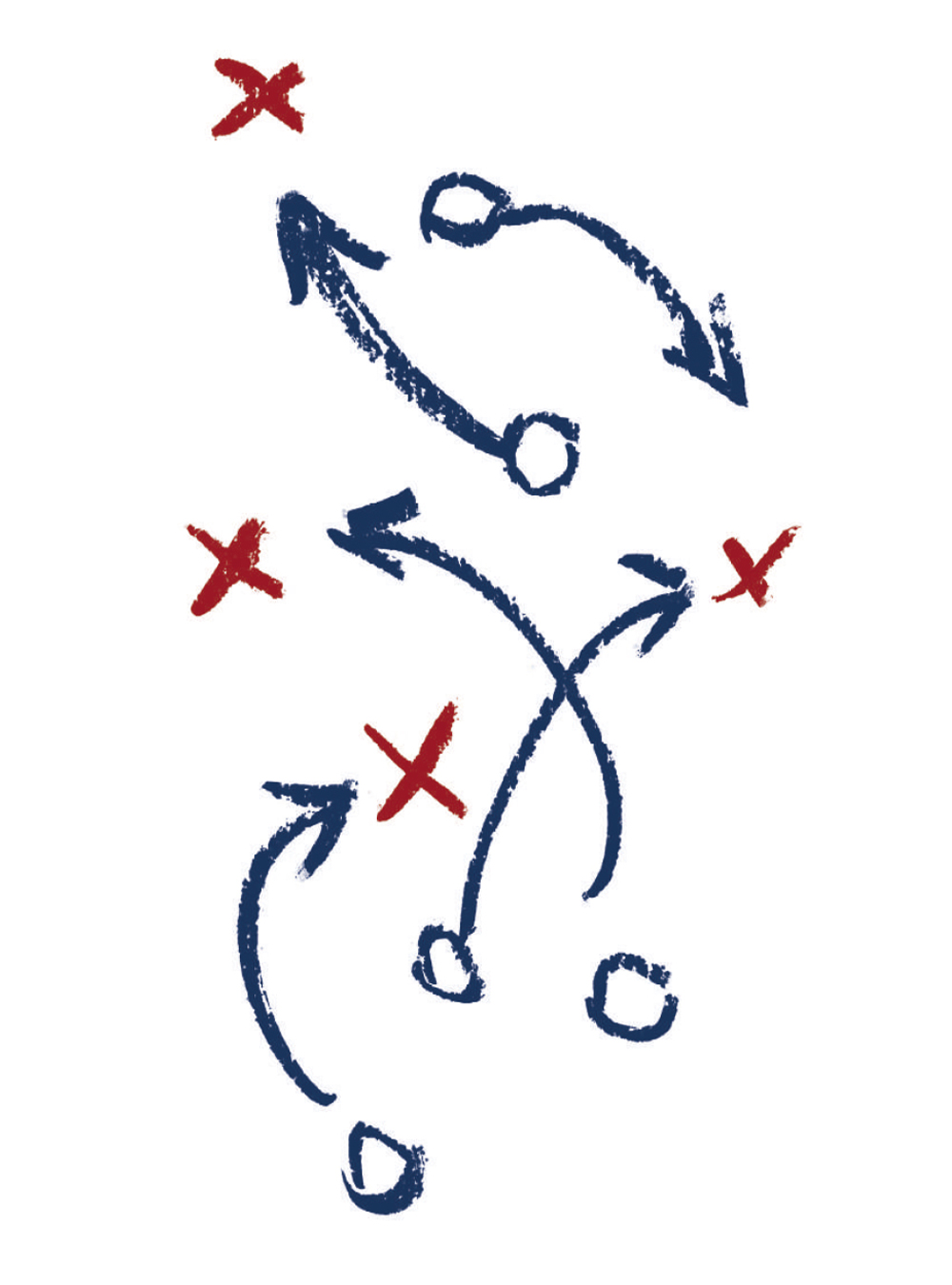
- Home |
- Search Results |
- Gareth Southgate: ‘We know what’s required to move forward’
Gareth Southgate: ‘We know what’s required to move forward’
In this extract from his book Anything Is Possible, the England manager talks about the importance of reviewing and analysing every match to progress at competitions like the Euros.
Today, as the England manager, I aim to focus with my players on what we can do to the best of our abilities, instead of worrying about what might go wrong. This doesn’t just apply to football, but any goal we set ourselves – from passing an exam to literally shooting for the moon. Whether we’re making a fresh start or just trying to be better at something, we all face challenges.
Along the way in life, there will be high points and low moments. You might even question if you’ve made the right choices, and think about giving up. As difficult as it might be to recognise in those tough times, it’s all a learning experience that will benefit you in the long run.

So, after England play any game, we always carry out a review.
We look at areas in which we performed well, and those we can improve. In order to make it manageable, we break the match into different phases focusing on attacking and defending. The aim is to develop confidence from what we did well, along with a desire to improve the areas that could have been stronger. We’ll also look at match statistics so we can be analytical in our review and show clear pathways for improvement. This all helps in providing feedback to the players so they can assess their performance – not just as individuals, but as a team.
My aim is to encourage pride in what we did well, along with a desire to work on our game where we could be stronger. By breaking down the match into markers – or different areas – we are able to be analytical in our review and show clear pathways for improvement.
This way, whether we win or lose, it will always be a learning experience. Whatever the result, it provides us with a way forward, as long as everyone is open to feedback and is focused on playing as a team at the highest level. Should we lose, we aim to work out what went wrong so we can act on it constructively. The wins certainly breed energy and enthusiasm, but rather than sit back feeling satisfied, we see them as an opportunity to challenge ourselves a little more and keep pushing in terms of performance.
'That newfound resilience and determination to succeed can help us to climb higher than ever before'
As well as reviewing the game we’ve just played, we’ll look ahead to the next one. This is key when we’re in a competition such as the European Championship or the World Cup. As a team, it’s important that we break our campaign into chunks. We might look at the group stage, for example, in which we face three opponents. We’ll look at what we need to achieve in the first match, while also keeping the other two in mind.
We want to win every game, of course, but often it’s a question of controlling the pressure we apply to the England team to make sure they deliver every time. This changes as matches take place, depending on how England and our competition fare. Do we need a win, a draw, or is it a question of goal difference? Then we’ll look at the strengths and weaknesses of the opponent and make sure our attitude to training is spot on, every session. By regularly reviewing all aspects of our game, we know exactly what’s required to move forward in what we hope will be our journey to lifting the trophy.
What did you think of this article? Let us know at editor@penguinrandomhouse.co.uk for a chance to appear in our reader’s letter page.
Image: Alicia Fernandes/Penguin
Photo credit: Laurence Griffiths/Getty Images